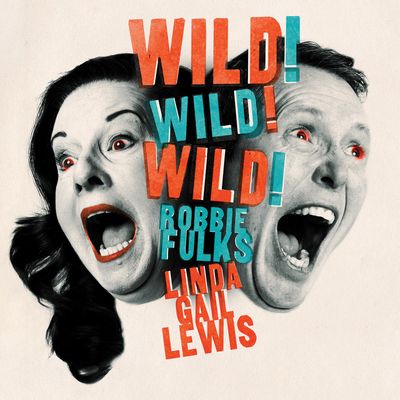Album reviews: Mitski, BC Camplight, Robbie Fulks and Linda Gail Lewis

Mitski - “Be the Cowboy”
♦♦♦
Mitski broke out as a not-to-be-ignored indie star with “Your Best American Girl,” the Japanese American singer’s bracing consideration of identity and belonging on her terribly titled but otherwise terrific fourth album, 2016’s “Puberty 2.” “Be the Cowboy” builds on that guitar-centered album’s success with a set of 14 precise songs that show how performance can give an individual power without necessarily solving any of her problems.
For Mitski, being the cowboy might mean being large and in charge in an old-fashioned alpha dog way, but it also means being unafraid to lay bare uncertainty and vulnerability. On “Nobody,” she sashays to a disco groove while wryly suggesting that our need for connection often leaves us empty. “Venus, planet of love, was destroyed by global warming / Did its people want too much?” The country-folk “Lonesome Love” could be about an individual or her audience: “Nobody butters me up like you,” she sings, while adding that no one satisfies like herself.
The self-confident album is brief, with few notes wasted. All of the 14 songs are in the two-and-a-half-minute or less range, except for the closing “Two Slow Dancers,” which takes its time pining for waltzes in a high school gym, before messy adulthood complicated everything. “I need somebody to remember my name,” she sings elsewhere, not fooling herself that notoriety will bring happiness, but still taken with the idea of art making her immortal. – Dan DeLuca
BC Camplight - “Deportation Blues”
♦♦♦ 1/2
“I’m in a weird place now,” Brian Christinzio sings to a bouncy, scruffy melody on “Deportation Blues,” his fourth album as BC Camplight. His weird place could be mental, musical, or geographical, and his complicated backstory is central to the album. In 2012, the longtime Philly keyboard player decamped to Manchester, England, for mental and physical health reasons but got deported shortly after releasing 2015’s “How to Die in the North.” After returning to Philly (documented here in “Hell or Pennsylvania”), he managed to use his grandparents to get an Italian passport and resume life as a Mancunian.
Christinzio has a knack for sweet, baroque melodies, but on “Deportation Blues” he often subverts them with abrupt tempo changes, bursts of squelching synths, and dramatic flourishes. The first BC Camplight albums drew Brian Wilson and Zombies comparisons; this one is more akin to the Eels or early David Bowie. Christinzio has turned his deportation blues into something delightfully overstuffed and happily weird. – Steve Klinge
Robbie Fulks-Linda Gail Lewis - “Wild! Wild! Wild!”
♦♦♦♦
On “Round Too Long,” the piano-pounding boogie that opens “Wild! Wild! Wild!,” Linda Gail Lewis fairly spits out, “This ain’t an old folks reunion.” No it’s not. What it is is an out-of-left-field pairing of the sister of the Killer himself, Jerry Lee Lewis, and veteran Americana singer-songwriter Robbie Fulks. They’re not spring chickens, to be sure, but you wouldn’t know it – they have combined to produce one of the year’s liveliest and most entertaining sets.
The piano-playing Lewis, 71, has recorded duet albums with her brother and Van Morrison, but she seems to have a special chemistry with the 55-year-old Fulks. Maybe that’s because he has come up with his best material in years. Numbers such as “Round Too Long,” “I Just Lived a Country Song,” and “Till Death” echo his brilliant early work, when he managed to embrace the conventions of country while slyly and affectionately sending them up. On the other hand, there’s no irony in “Foolmaker” or “That’s Why They Call It Temptation,” the latter of which sounds like a classic George-and-Tammy or Conway-and-Loretta duet.
The Fulks originals are augmented by chestnuts like Don Gibson’s “Who Cares,” which introduces some jazzy strains; the gospel-inflected “On the Jericho Road”; and “Boogie Woogie Country Gal,” which gives Lewis another chance to cut loose on the 88s.
For all the sass Lewis displays here, the album ends on a strikingly tender note, with her delivery of the quietly reflective “Hardluck, Louisiana.” The performance underscores the depth of this inspired collaboration. Fulks wrote the ballad, but it’s about Lewis’ childhood, and the feeling she brings to it points up just how perfectly he captured her story. – Nick Cristiano